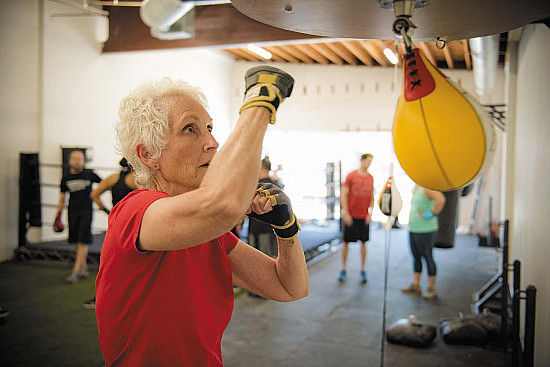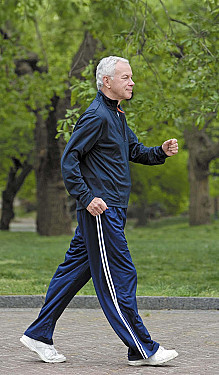Incentives help people become more active
In the journals
- Reviewed by Howard E. LeWine, MD, Chief Medical Editor, Harvard Health Publishing; Editorial Advisory Board Member, Harvard Health Publishing

A study published online April 7, 2024, by Circulation found that adults can benefit from receiving incentives to become more active. Researchers recruited more than 1,000 adults who were at an elevated risk for a heart attack or stroke over the next 10 years. Participants used a fitness tracker for two weeks to establish a baseline number of daily steps. Everyone then set a goal to increase their average daily steps by 33%, 40%, 50%, or any number greater than 1,500 steps.
After setting their goals, participants were randomly divided into four groups. Three groups were offered incentives to reach their goals. One received game-like rewards, another financial rewards, and the third a combination of both. A control group wore fitness trackers but didn't receive incentives. The game and financial rewards consisted of people earning or losing points or money depending on whether they met their daily step goal. The control group received a daily text telling them if they met their goal.
Over a year, participants in the fitness tracker control group increased their daily step count by an average of 1,500 steps. In contrast, people in all the incentive groups improved their daily steps by 2,000 to 2,400 steps. This amount of increase would be expected to correlate with a 10% reduced risk of death from heart attack or stroke. The study highlighted how discovering your own ways to reward yourself might lead to increases in daily physical activity.
Image: © PeopleImages/Getty Images
About the Author

Matthew Solan, Executive Editor, Harvard Men's Health Watch
About the Reviewer

Howard E. LeWine, MD, Chief Medical Editor, Harvard Health Publishing; Editorial Advisory Board Member, Harvard Health Publishing
Disclaimer:
As a service to our readers, Harvard Health Publishing provides access to our library of archived content. Please note the date of last review or update on all articles.
No content on this site, regardless of date, should ever be used as a substitute for direct medical advice from your doctor or other qualified clinician.
















